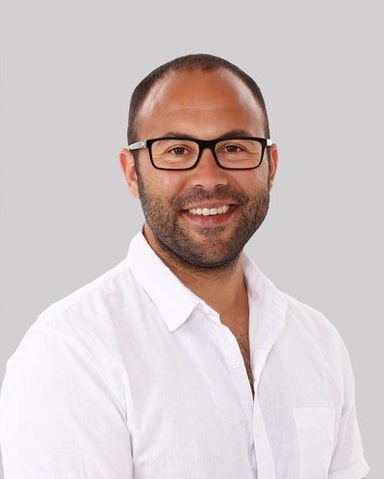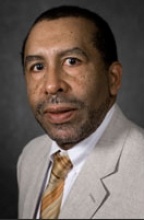African American Studies faculty members Simon Balto, Assistant Professor of History and African American Studies, and Richard Brent Turner, Professor of Religious Studies and African American Studies, have been named 2020 fellows of the American Council of Learned Societies.
ACLS Fellowships are among the most prestigious research honors in the humanities. They offer scholars the opportunity to devote six to twelve continuous months to full-time research and writing for a specific project. The awards are portable and are tenable at the fellow's home institution, abroad, or at another appropriate site for research.
Simon Balto

Simon Balto's project is a book titled, "Racial Framing: Blackfaced Criminals in Jim Crow America".
This project—for which Balto also recently received a National Endowment for the Humanities fellowship—documents the history of white criminals who donned blackface in order to commit crimes during the Jim Crow era in the United States. From at least the 1880s through the 1930s, it was a fairly common practice for white men and women across the country to cover their skin with burnt cork, wear stereotypically "black" clothing, and use other racial ruses to deflect suspicion for their crimes away from themselves and onto black people. In so doing, they artificially inflated black crime statistics, thus reinforcing the burgeoning myth of black criminality, and endangered black life by ginning the wrath of retributive mobs and individuals. Black activists and journalists waged campaigns against the practice, including pushing legislation that would make it a federal crime, but to no avail. This project excavates and analyzes this history for the first time.
Balto joined the University of Iowa faculty in 2018. He teaches, researches, and writes about African American history in the United States. His first book, Occupied Territory: Policing Black Chicago from Red Summer to Black Power (University of North Carolina Press, 2019), explores the development of a police system in Chicago’s Black neighborhoods that over the course of the mid-twentieth century became simultaneously brutally repressive and neglectful. His writing has also appeared in TIME magazine, The Washington Post, The Progressive, the Journal of African American History, Labor, and numerous other popular and scholarly outlets.
Richard Turner

Richard Turner is working on a book titled, "African-American Islam and Jazz: Religion, Music, and Black Internationalism".
This project explores the historical connections among jazz, African-American Islam, and black internationalism from the 1940s to the 1970s. It argues that African-American Islam and jazz shared parallel values of black affirmation, freedom, and self-determination. Focusing on the spiritual, musical, and political creativity of swing and bebop musicians in Boston, New York, and Philadelphia, it also argues that the conversion of jazz artists to Islam was central to the ascendancy of the religion in the United States. The project examines the interactive lives of jazz musicians and Muslims in a black Atlantic context of coolness and masculine performance during the era of global black liberation that spanned the period from World War II to the very beginning of the Black Power movement.
Turner joined the UI faculty in 2001. His research program focuses on twentieth-century and contemporary African-American religious history and African diaspora religions in the Black Atlantic world. He is especially interested in the following areas: Islam in the United States; religion and music in New Orleans, before and after Hurricane Katrina; Vodou in the United States and Haiti; interactions between African-American religion and popular music — jazz, soul, and hip hop; black nationalism and religion; African-American religion and human rights; ethnography; urban religious experience; and globalization and transnationalism. He is a widely published scholar with several published book-length projects, including Jazz Religion, the Second Line, and Black New Orleans: After Hurricane Katrina, New Edition (Indiana University Press, 2017) and Islam in the African-American Experience, Second Edition (Indiana University Press, 2003).